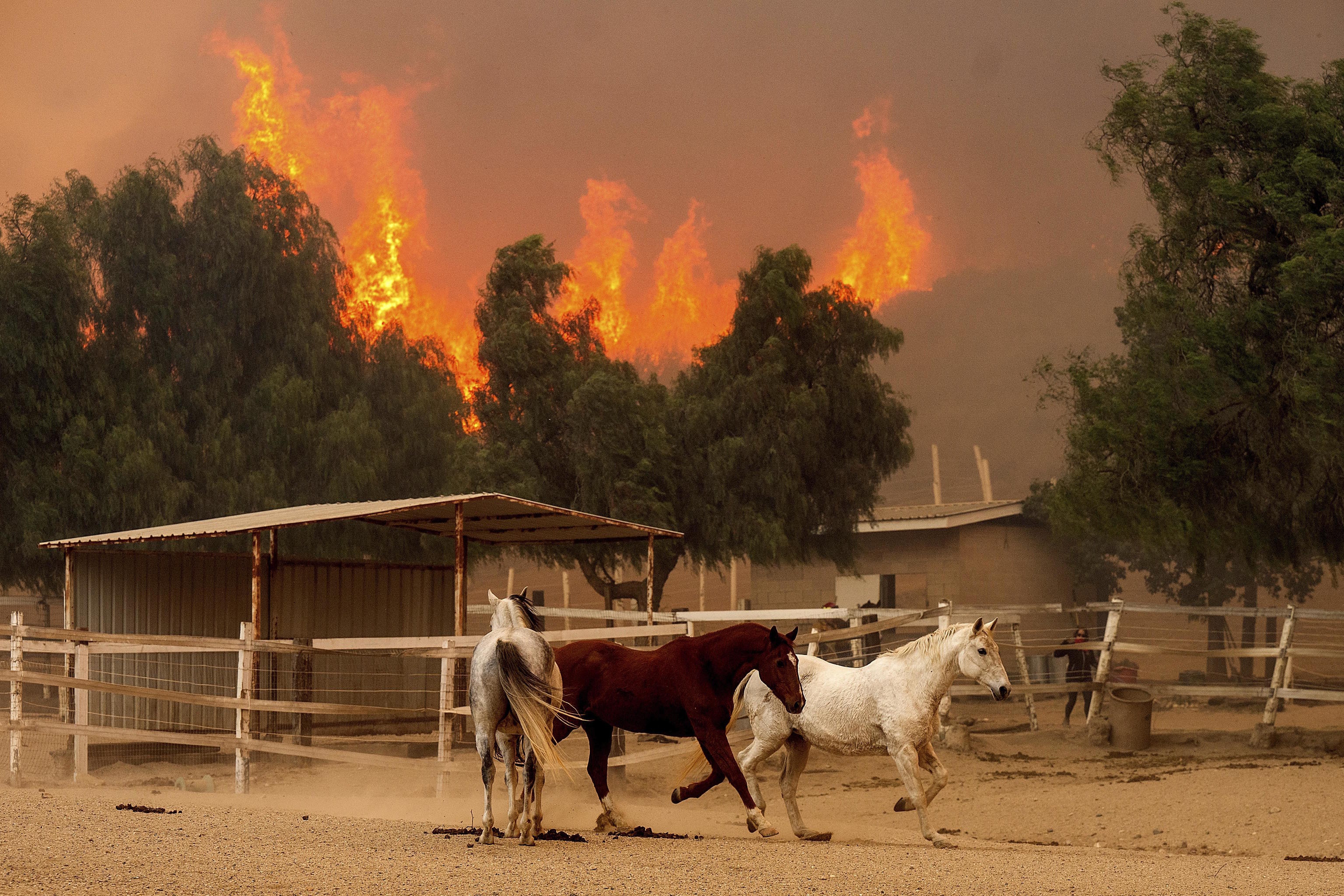Some 10,000 people remained under evacuation orders Friday morning as the fire continued to threaten about 3,500 structures in suburban neighborhoods, ranches and agricultural areas around Camarillo in Ventura County.
At least 88 additional structures were damaged in addition to the 132 destroyed, which were mostly homes. Officials did not specify whether they had been burned or affected by water or smoke damage. The cause of the fire has not been determined.
Joey Parish returned to the site of his former home of more than 20 years in Camarillo Heights. All that was left was part of the burned-out steel frame.
"It's tough, it's really tough to know how to process the emotions," he told KNBC-TV on Thursday. He had evacuated with his wife and their cat. "Neither one of us has been able to cry yet," he said.
"What I have on my back is what I came out with," he said. "My cellphone, and not even a charger, and no toothbrush — nothing."
Ten people suffered smoke inhalation or other non-life-threatening injuries, Ventura County Sheriff James Fryhoff said.
Crews working in steep terrain with support from water-dropping helicopters were focusing on protecting homes on hillsides along the fire's northeast edge near the city of Santa Paula, home to more than 30,000 people, county fire officials said.
Officials in several Southern California counties urged residents to be on watch for fast-spreading blazes, power outages and downed trees during the latest round of notorious Santa Ana winds.
Santa Anas are dry, warm and gusty northeast winds that blow from the interior of Southern California toward the coast and offshore, moving in the opposite direction of the normal onshore flow that carries moist air from the Pacific. They typically occur during the fall months and continue through winter and into early spring.
Ariel Cohen, a National Weather Service's meteorologist in Oxnard, said Santa Ana winds were subsiding in the lower elevations but remained gusty across the higher elevations Thursday evening.
The red flag warnings, indicating conditions for high fire danger, expired in the area except in the Santa Susana Mountains, where the warnings will expire by 11 a.m. Friday in the mountains. The Santa Anas are expected to return early-to-midweek next week, Cohen said.
An air quality alert for harmful fine particle pollution was in effect from Friday morning until Saturday afternoon due to smoke from the wildfires.
More than a dozen school districts and campuses in Ventura County were closed Friday due to impacts from the fires, according to the county's Office of Education.
The Mountain Fire was burning in a region that has seen some of California's most destructive fires over the years. The fire swiftly grew from less than half a square mile (about 1.2 square kilometers) to more than 16 square miles (41 square kilometers) in little more than five hours on Wednesday.
Gov. Gavin Newsom has proclaimed a state of emergency in Ventura County.
California utilities began powering down equipment during high winds and extreme fire danger after a series of massive and deadly wildfires in recent years were sparked by electrical lines and other infrastructure.
Power was shut off to nearly 70,000 customers in five counties over the heightened risk, Southern California Edison said Thursday. Company spokesperson Gabriela Ornelas could not immediately answer whether power had been shut off in the area where the Mountain Fire was sparked.
The wildfires burned in the same areas of other recent destructive infernos, including the 2018 Woolsey Fire, which killed three people and destroyed 1,600 homes near Los Angeles, and the 2017 Thomas Fire, which burned more than a thousand homes and other structures in Ventura and Santa Barbara counties. Southern California Edison has paid tens of millions of dollars to settle claims after its equipment was blamed for both blazes.
